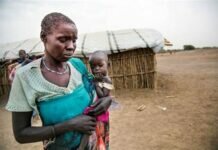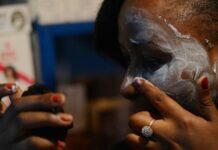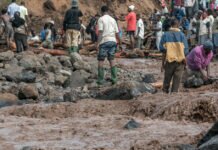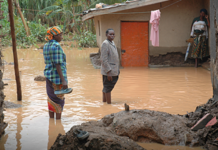
Recounting a recent night with one of her United Nations clients, Gabby says she was asked to wait in the car before the staffer snuck her into his U.N. compound.
“He told me not to let anyone see me and not to speak to anyone,” said Gabby, a 26-year-old sex worker in South Sudan’s capital of Juba. “Once inside, we’d walk step by step and he’d switch off the lights and direct me how to move.”
It was obvious the humanitarian knew what he was doing was wrong and was taking precautions to hide it, said Gabby, whom Devex will continue to refer to only by this name to protect her identity.
Allegations of humanitarians and other global development professionals sexually exploiting members of the communities they serve are not new. The U.N. and international NGOs worldwide have been under scrutiny in recent months for accusations of sexual abuse of vulnerable people. South Sudan is no exception.
Despite the UN’s ‘zero tolerance policy,’ sexual exploitation continues in South Sudan
The United Nations is treating transactional sex allegations against South Sudan’s Ghanaian peacekeeping unit as an isolated incident. But several stakeholders tell Devex this is unlikely — and that it is time for the U.N. to relinquish a larger investigation to an independent body.
Last month, the U.N. recalled a 46-member Ghanaian peacekeeping police unit from a protection of civilian site in the town of Wau following allegations of members of the unit having “transactional sex” with locals.
The action of the U.N. in this case will provide “interesting insight into whether or not the [U.N.] secretary-general is serious about sexual abuse,” Peter Gallo, an international lawyer and former U.N. Office of Internal Oversight Services investigator, told Devex of what comes after the recall.
The U.N. is currently treating the allegations against the Ghanaian peacekeeping unit as an isolated case, stating after the incident that there are no indications that the behavior of the unit is more widespread within the mission.
Devex spoke with several sex workers in Juba who shared that the sex trade in the capital is booming thanks in large part to international aid workers and U.N. staff: “I take advantage,” Gabby said. “They’re good clients, they give good money, better than anybody else.”
The number of sex workers seemingly increases “every day” in Juba, Gabby said, some of them as young as 15. But her client pool has also increased dramatically. Having worked in Juba’s sex trade for the past three years, Gabby counted about 30 people calling her regularly several years ago, she said. Today, she has 100 men seeking her services, about 60 of those she says are U.N. or NGO contacts.
Gabby works three or four nights a week and can make up to $200 a night from one international aid worker or U.N. staff client, she said — an evening that often includes dinner, drinks, and a fully paid hotel room.
This is in stark contrast to her South Sudanese clients, many of whom don’t pay at all and sometimes turn violent. Gabby says her life has been threatened several times when local men have pulled out guns and kicked her out of their cars in the middle of the night, forcing her to walk home in the dark, often miles away from town.
As a result, Gabby rarely works with locals anymore, she said, instead targeting “international guys” who treat her kindly and pay well.
Together with three or four colleagues, she frequents places she knows they’ll find clients, such as a few small bars just several hundred meters away from the U.N. base, where she says she can exchange contact information with men.
Gabby’s international regulars include U.N. staff and NGO workers who are generally “whites from all over,” she said, including Russians, Ukrainians, Britons, and Americans as well as men from other African countries, she said.
Her 23-year-old colleague Ester says the majority of her clients are Ugandan, many of whom exit the U.N. compound and take her to a hotel.
Not only is prostitution illegal in South Sudan according to the country’s penal code, it’s also against the U.N.s’ code of conduct as well as most NGOs’ ethical mandates.
///Devex











































